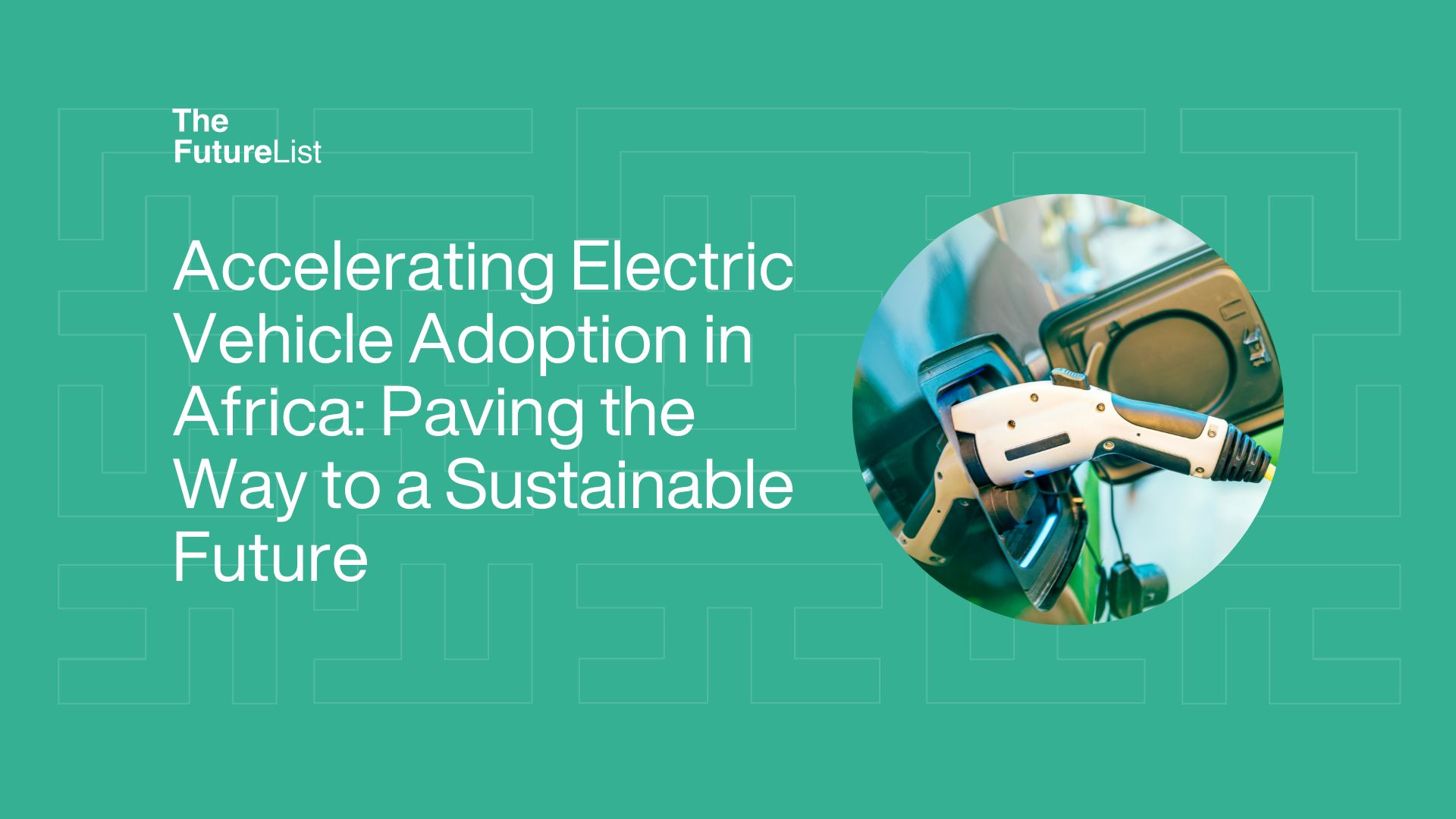
Accelerating Electric Vehicle Adoption in Africa: Paving the Way to a Sustainable Future
Electric vehicles (EVs) are heralded as the future of transportation, offering a cleaner and more sustainable alternative to traditional gasoline-powered cars. While EV adoption is gaining momentum globally, Africa remains at the periphery of this transformative wave. The challenge lies not in the potential but in the execution. What will it take to accelerate EV adoption across the continent? This article explores the multifaceted approach necessary to drive this transition, focusing on infrastructure, policy, and economic incentives.
Infrastructure Development: Building the Backbone
A robust and accessible charging infrastructure is the cornerstone of EV adoption. Africa’s current infrastructure is predominantly underdeveloped, posing a significant barrier to widespread EV usage. To address this, a coordinated effort is needed to:
Expand Charging Networks: Governments and private sector players must invest in a comprehensive network of charging stations across urban and rural areas. Public-private partnerships can be instrumental in financing and deploying these stations.
Integrate Renewable Energy: Given Africa’s abundant renewable energy resources, integrating solar, wind, and hydroelectric power into the EV charging network can ensure sustainability and reduce reliance on fossil fuels. Projects like Kenya’s Solar Carport initiative serve as exemplary models.
Upgrade Grid Capacity: Strengthening the electrical grid to handle increased loads from EV charging is crucial. This includes modernising grid infrastructure, enhancing grid resilience, and ensuring reliable power supply.
Policy and Regulatory Framework: Creating an Enabling Environment
Effective policies and regulations can accelerate EV adoption by creating a conducive environment for stakeholders. Key policy measures include to be taken include:
Subsidies and Tax Incentives: Offering financial incentives such as tax breaks, subsidies, and reduced import duties on EVs and related components can make EVs more affordable for consumers and attractive to manufacturers.
Regulatory Standards: Establishing clear standards for vehicle performance, safety, and emissions can promote consumer confidence and encourage manufacturers to enter the market. Harmonising these standards across the continent can facilitate cross-border trade and investment.
Mandates and Targets: Governments can set ambitious targets for EV adoption, mandating a percentage of new vehicle sales to be electric by a specific date. Such mandates can drive market demand and stimulate industry growth.
Economic Incentives: Making EVs Affordable
Affordability remains a significant barrier to EV adoption in Africa, where the average consumer’s purchasing power is lower than in developed markets. Addressing this requires:
Cost Reduction Strategies: Encouraging local production and assembly of EVs can reduce costs associated with importation. Additionally, leveraging economies of scale through bulk purchasing agreements can further lower prices.
Financing Options: Innovative financing models such as leasing, pay-as-you-go, and microloans can make EVs accessible to a broader segment of the population. Collaborations with financial institutions can facilitate these options.
Battery Second-life and Recycling: Developing markets for second-life EV batteries and recycling can reduce overall ownership costs and environmental impact. This can also stimulate local industries and create jobs.
Public Awareness and Education: Cultivating Acceptance
Public perception and awareness are pivotal in driving EV adoption. Comprehensive education and awareness campaigns can:
Highlight Benefits: Emphasise the environmental, economic, and health benefits of EVs. Highlight success stories and case studies from within Africa and globally to build consumer trust and interest.
Dispel Myths: Address common misconceptions about EVs, such as concerns about range, performance, and maintenance. Providing accurate and accessible information can alleviate consumer fears and resistance.
Engage Communities: Involve local communities in pilot projects and demonstrations. Engaging with community leaders and influencers can amplify the reach and impact of awareness campaigns.
Accelerating EV adoption in Africa is a complex but achievable goal that requires a holistic approach encompassing infrastructure development, policy and regulatory frameworks, economic incentives, and public awareness. By addressing these key areas, Africa can pave the way for a sustainable and environmentally friendly transportation future. The road ahead is challenging, but with concerted effort and collaboration among governments, private sector players, and civil society, the dream of widespread EV adoption in Africa can become a reality.
Get innovation insights from The FutureList weekly. Subscribe to our newsletter here
Categories
- Agritech
- Artificial Intelligence
- Biotech
- Blockchain
- Climate Tech
- Data Infrastructure
- Edtech
- Events
- Fashion
- Fintech
- Healthtech
- Infrastructure
- Innovation Memos
- Innovation Scout Program
- Insight
- Insurtech
- Machine Learning
- Martech
- Mobility
- Music and Media
- Partner Offers
- Perks
- Procurement
- Proptech
- Retailtech
- Ridehailing
- Ridesharing
- Robotics
- Space Aviation
- Supply Chain
- Talent
- Telecoms
- Uncategorized
- Venture Capital
- Wastetech
- Women In Tech